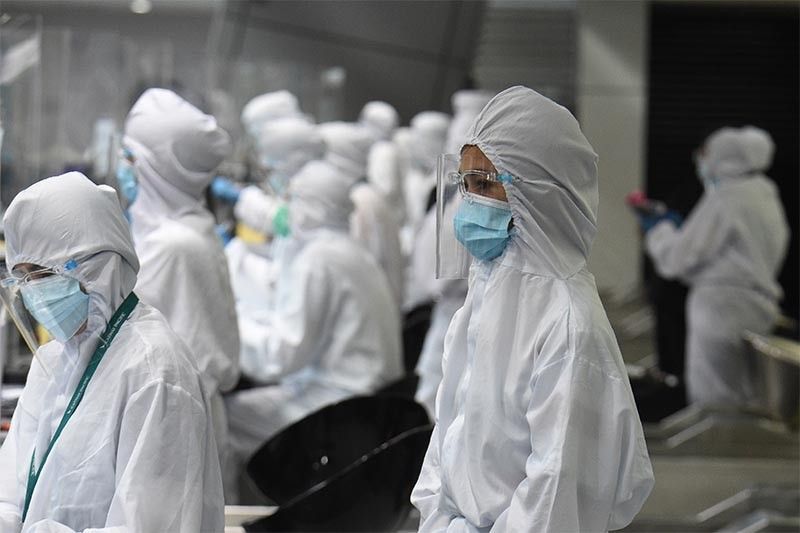Commentary: Philippine Army's transformation amid fight vs unconventional threat, pandemic

War has always been the default battleground of the military. This is a conventional threat for the military and anchors all the strategy and program structure of the armed forces. This usually covers the states, citizens, organizations and stakeholders to military threat. However, national security is not only conventionally threatened.
As the world globalized, unconventional threats also pose challenges to the forefronts of the state’s security. Said threats are usually in the form of pandemic, financial crisis and disasters. These are usually unpredictable and beyond the control of either government or military forces.
During the last quarter of 2019, a disease previously unbeknownst to the global population began its initial proliferation. It spread rapidly which caused infection among thousands of people in its point of origin.
Novel coronavirus, most commonly known as COVID-19, spread rapidly in different parts of the world and the Philippines has recorded numerous cases of said disease. Since the disease is fatal, it posed a national threat in the country.
After conducting nationwide lockdown, the country’s economy was affected. Decline in general mental well-being as well as economic implications, such as loss of livelihood and downturn of businesses, were severely felt.
Most of all, the health and welfare of the Filipinos are on the line. Conduct of nationwide lockdown means that the military has to exert effort in combating this invisible enemy.
Without any prior knowledge and cure, military forces accepted the challenge to secure the nation. The community lockdown implicated the high demand for the service of military forces in maintaining peace and stabilizing the situation in the different parts of the country. In response, Philippine Army deployed troops to support the security in the implementation of the lockdown.
Before the onset of the unconventional threat in the form of COVID-19, the armed forces, primarily the Philippine Army, is undergoing an organizational transformation with a goal of becoming a world-class Army by the year 2028.
In the pursuit to modernize the Armed Forces of the Philippines, a law was passed which became known as the Armed Forces of the Philippines Modernization Act which aims to modernize its major services such as the Philippine Army, the Philippine Airforce and Philippine Navy. The act will help in the enhancement and development of the major services to invest in machineries and equipment that will strengthen and expand the operations of the major services.
The law first entered into force in 1995 during the administration of President Fidel Ramos in accordance to develop a self-reliant and strategic armed forces.
The act states that the AFP must develop and enhance the following areas: force restructuring and organizational development, capability, material and technology development, human resource development, and doctrines and development.
Likewise, acquisition of machineries and equipment that will enhance the operations of the major services is included and funded in the act. The modernization program is a 15-year plan.
In 2012, an amendment of the act was signed by President Benigno Aquino III. The amendment of the act is composed of three horizons. The first phase began in 2013 and ended in 2017, while the second phase started in 2018 and will end in 2022. The last phase will commence in 2023 and will conclude in 2028.
To complement the timeline indicated in the law that mandates the modernization of the PA, the Army Transformation Roadmap (ATR) was launched in 2010. This is an 18-year journey toward achieving a world-class army.
The road map is a timeline that specifies the attainment of the PA within the specific period. The ATR also anchors the programs and projects of the organization.
The challenges posed by COVID-19 affects the transformation of the Philippine Army towards a world class-army. According to Cpt. Ramius Dizon of the Office of the Army Chief Surgeon, COVID-19 pandemic must be directly addressed because its presence and consequences pose a challenge not only in the Philippine Army but to the country.
Also, guidelines are important to address and stabilize situations during this kind of threat. He also stated that it is important for the Philippine Army to recognize this challenge to become adept in addressing future threats that can pose greater harm in the country.
Henceforth, it can be observed that the unconventional threat specifically COVID-19 contributed to the planning and programming of the Philippine Army in addressing threats of this nature and vying towards becoming a world-class Army.
The programs established by the Philippine Army in addressing these unconventional and unfamiliar challenges enhanced the capability of the military in adapting to the changes brought by the said form of threat.
- Latest




























